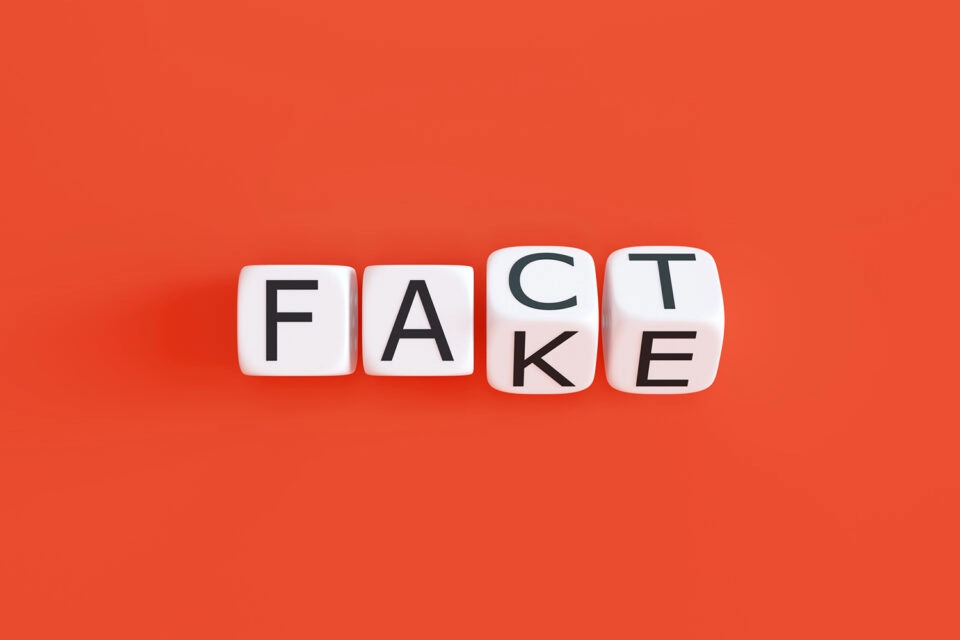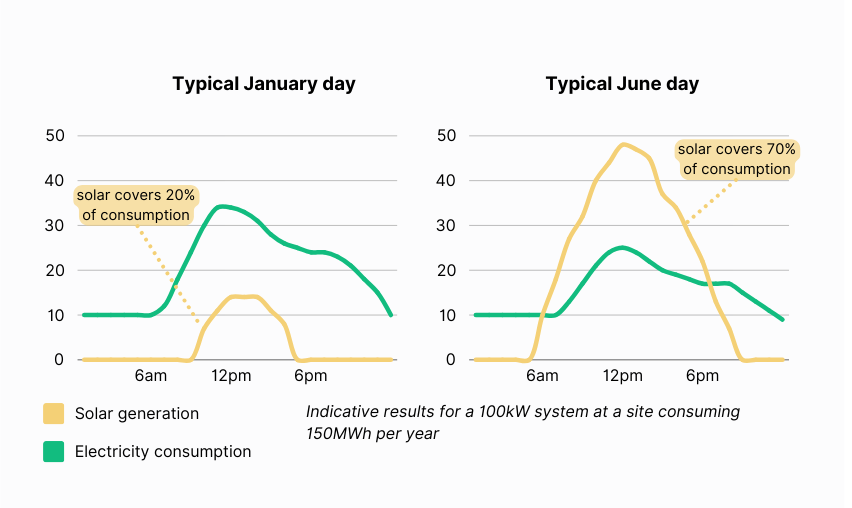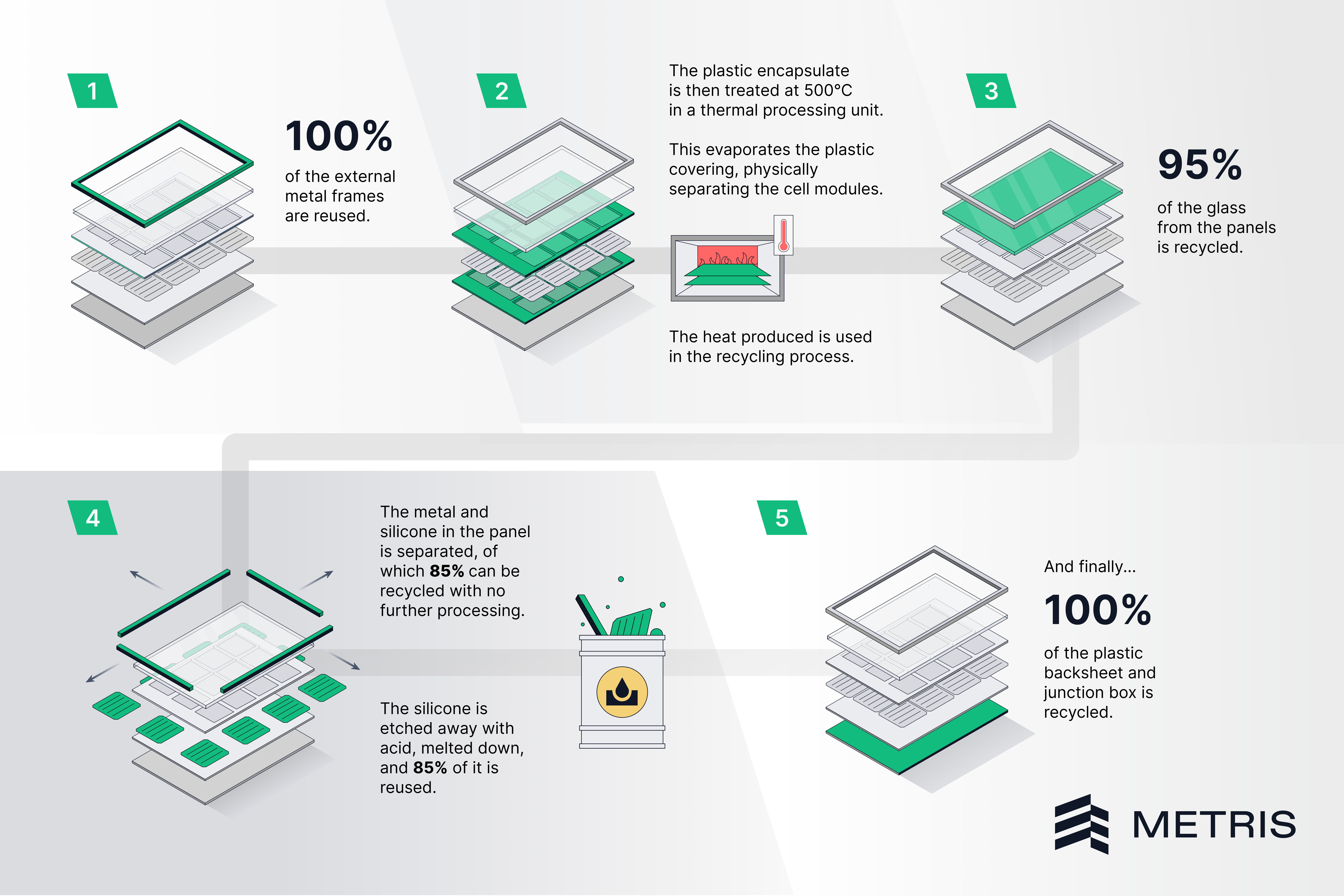Fake news or factual? Busting myths about solar energy
By: Holly Homewood

At Metris, we hear all kinds of reasons why commercial property owners are hesitant to install solar - from the unreliability of British weather, to maintenance of the panels. The concerns seem to come from a quick Google search, where myths become hard truths and these truths become a deterrent against climate action.
In this article, we dig into the reality of installing solar, separating the facts from the fake news.
Myth 1: It’s too cloudy in the UK for solar, I won’t make my money back
Solar panels don’t need direct sunlight to produce energy, they need daylight. This means that even if it’s cloudy or raining, your panels will still work.
Whilst they’ll be at their optimum performance when they’re in direct sunlight, throughout the Winter you will still produce enough electricity to save on your energy bills, and in the UK the payback period is often between three and six years.

Secondly, excessive heat can actually impact the performance of your panels, making them perfect for UK property. Heat over 35°C can cause the electrons to become too active, bouncing around too much and reducing their performance.
Myth 2: Solar energy is unreliable
Renewable energy generates a variable supply of energy and as a result, has a reputation of being unreliable.
It’s of course true that it's not always daytime, meaning consistent energy production isn’t possible, but this doesn’t mean that solar is unreliable. In fact, annual solar generation varies very little year on year.
In Winter, when there are less daylight hours, businesses will typically generate a third of the Summer time generation and can supplement on-site generation with alternative energy sources from the grid.
In Summer, there will be times when your solar panels produce too much energy. In this instance there are two options: A battery can be integrated into the system to store the excess energy for those times when there is no sunlight. Or, you can sell the excess energy back to the grid, generating income.
Alternatively, if you want to be savvy with your savings, you can use the energy stored in the battery during peak times when it’s more expensive to buy from the grid, and use energy from the grid when demand, and therefore cost, is low.
If you don’t have a battery installed you can remain connected to the grid for your energy consumption at times when the panels aren’t operating, for example, at night.
Myth 3: Once I’ve installed solar panels I’ll have to maintain them
Firstly, this depends on how you have financed the panels and who owns them. Whoever owns the panels is normally responsible for taking care of them. For example, if the panels have been funded by a developer and they have brokered a Power Purchase Agreement to sell the energy to the business, maintenance will fall to the developer.
Secondly, they generally need very little maintenance. As long as they have been installed by a reputable company, and the necessary add-ons have been included such as bird protection, they should only need cleaning once every couple of years.
Myth 4: Solar panels aren’t recyclable
Actually almost 100% of the material that goes into the panels is recycled. Check out the stats below.

Myth 5: Installing solar will damage my roof
An engineering and structural review of your roof will be carried out by a solar installer before the construction starts. This will determine whether your roof structure and tiling can withstand the weight of a solar installation, as well as the impacts of local snow and wind conditions. A workmanship warranty will also be provided by the installer to protect you on the unlikely chance that damage occurs due to the installation. But as long as you’re working with a top commercial solar installer, it’s very unlikely that your roof will be damaged.
If you're still unsure whether solar is right for your business, or you would like to learn more about the solar installation process, please set up a time to speak to a member of our team.